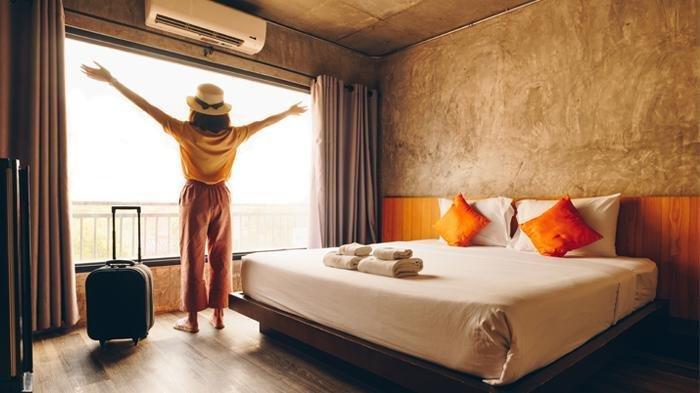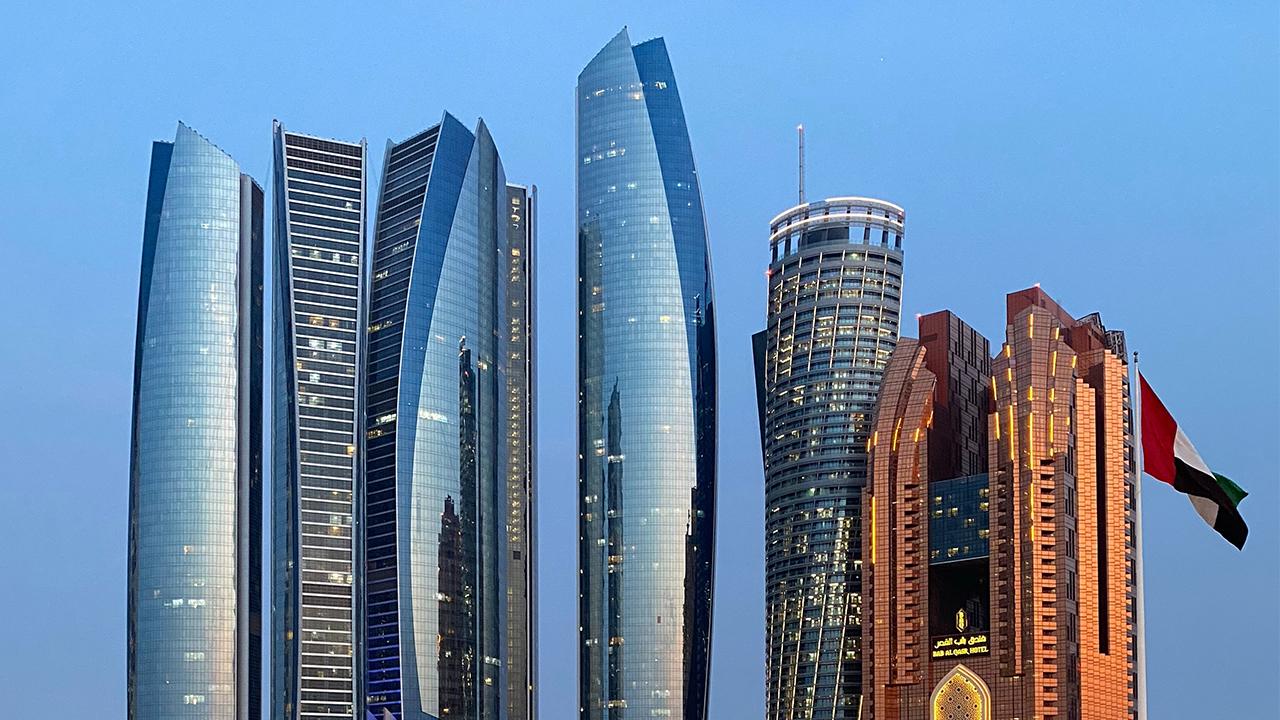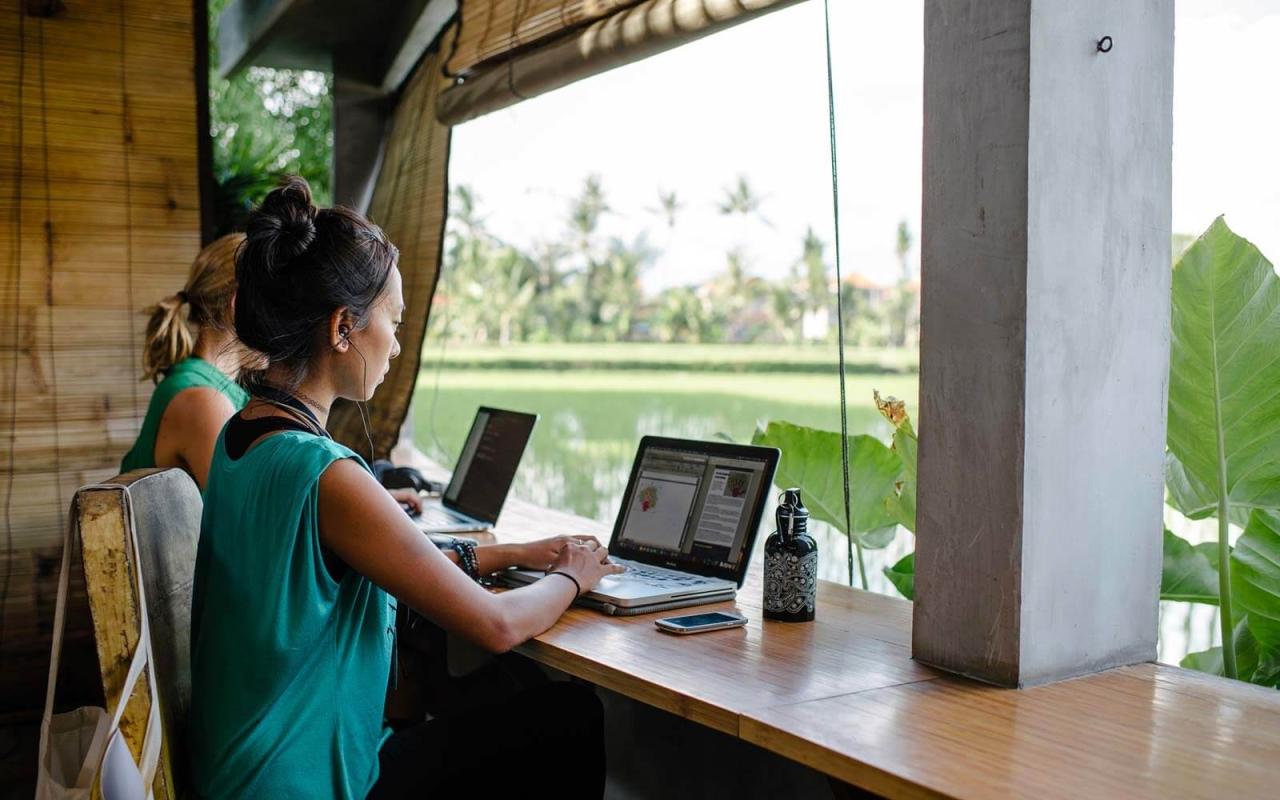The Rise of Location-Independent Professionals

The traditional 9-to-5 office paradigm has been irrevocably altered. Fueled by technological advancements, evolving corporate policies, and a desire for greater work-life balance, remote work has transitioned from a fringe benefit to a mainstream reality. This fundamental shift has unleashed a new breed of traveler: the location-independent professional. These individuals require accommodations that seamlessly blend the comforts of home with the functionalities of a professional workspace, enabling them to maintain productivity regardless of their geographical location.
Remote work accommodations are specifically designed to meet these unique requirements, often encompassing:
A. High-Speed, Reliable Internet: This is non-negotiable. Beyond basic Wi-Fi, remote workers need robust, stable, and fast internet connections suitable for video conferencing, large file transfers, and continuous online collaboration. Many providers offer dedicated, secure networks.
B. Dedicated Workspace: More than just a desk in a hotel room, these accommodations often feature ergonomic chairs, ample desk space, proper lighting, and power outlets. Some even provide separate work areas within the unit or access to co-working spaces.
C. Comforts of Home and Extended Stay Amenities: Remote workers often seek longer stays, necessitating amenities like fully equipped kitchens or kitchenettes, laundry facilities, comfortable living areas, and ample storage space, mimicking a residential environment.
D. Flexibility in Booking and Stay Duration: Accommodations offer flexible booking options, including weekly or monthly rates, and allow for easy extensions or modifications, catering to the often-unpredictable nature of remote work itineraries.
E. Soundproofing and Privacy: Crucial for focused work and sensitive video calls, good soundproofing within units and quiet communal areas are highly valued features. Privacy, whether in private rooms or dedicated co-working booths, is key.
F. Community and Networking Opportunities: While working remotely can be isolating, many accommodations foster a sense of community through organized social events, networking opportunities, and shared spaces, allowing digital nomads to connect with like-minded individuals.
G. Access to Printing, Scanning, and Meeting Facilities: Basic office necessities like printers, scanners, and small meeting rooms or private phone booths are often available on-site, mirroring a traditional office environment.
H. Health and Wellness Facilities: Given the often sedentary nature of remote work, access to fitness centers, wellness programs (e.g., yoga, meditation), or proximity to green spaces is a significant draw, promoting work-life integration.
The Driving Forces Behind the Boom
The surge in demand for remote work accommodations is not a fleeting trend but a fundamental shift fueled by several powerful socioeconomic and technological factors.
A. The Remote Work Revolution
The most obvious catalyst is the widespread adoption of remote work policies by companies globally. Accelerated by the pandemic, businesses realized that remote teams can be productive, leading to a permanent shift for many. This creates a vast pool of potential guests who are no longer tethered to a physical office.
B. Desire for Work-Life Integration
Beyond just working remotely, individuals are increasingly seeking a better work-life balance and work-life integration. Remote work accommodations allow them to combine their professional responsibilities with travel, exploration, and personal pursuits, fostering a more fulfilling lifestyle. They can experience different cultures without sacrificing their career.
C. Digital Nomad Lifestyle Flourishing
The “digital nomad” lifestyle, once a niche, is now aspirational for many. Enabled by technology, individuals can work from anywhere with an internet connection. Accommodations specifically designed for this lifestyle make it easier and more sustainable for them to live and work across various locations, often for extended periods.
D. Cost-Efficiency and Flexibility for Companies
Companies are also recognizing the benefits. Providing remote work allowances or direct bookings for flexible accommodations can be more cost-effective than maintaining large, expensive physical office spaces. It also offers flexibility for project-based teams or temporary assignments without long-term commitments.
E. Advanced Connectivity and Communication Tools
The evolution of high-speed internet infrastructure (including 5G), cloud-based collaboration platforms (e.g., Slack, Zoom, Microsoft Teams), and project management software has made remote work highly efficient and effective. This technological backbone is what truly liberates workers from the office.
F. Economic Incentives and “Work from X” Initiatives
Many countries and cities are actively trying to attract remote workers with special “digital nomad visas” or tax incentives, recognizing the economic boost they bring. Accommodation providers are aligning with these initiatives, offering tailored packages to attract this lucrative segment.
Defining Features of Optimal Remote Work Accommodations

What truly sets exceptional remote work accommodations apart from standard hotels or rentals? It’s a combination of essential infrastructure and thoughtful service.
A. Uninterrupted, High-Speed Internet Access
This is the absolute bedrock. Not just “Wi-Fi available,” but guaranteed, high-bandwidth, stable internet connections, often with backup systems. Remote workers need to conduct seamless video calls, upload/download large files, and access cloud-based applications without interruption. Often, properties offer different tiers of internet speed for varying needs, including secure VPN access.
B. Ergonomically Designed Workspaces
Beyond a small hotel desk, dedicated remote work accommodations provide:
- Ergonomic Chairs: Crucial for comfort and posture during long working hours.
- Ample Desk Space: Enough room for laptops, external monitors, notebooks, and peripherals.
- Proper Lighting: Natural light where possible, supplemented by adjustable task lighting.
- Multiple Power Outlets: Easily accessible for various devices.Some units might even have standing desks or dedicated office nooks separate from the sleeping area.
C. Soundproofing and Privacy Provisions
Minimizing distractions is vital for productivity. This means:
- Effective Soundproofing: Between rooms and from external noise.
- Private Phone Booths or Call Pods: For confidential meetings or focused calls.
- Quiet Zones in Co-working Spaces: Designated areas for silent work.These features ensure that remote workers can focus without interruption and maintain confidentiality.
D. Fully Equipped Kitchens or Kitchenettes
For extended stays, the ability to prepare meals is a significant cost-saver and comfort enhancer. Accommodations offer:
- Stovetops, Microwaves, Refrigerators: Basic cooking appliances.
- Pots, Pans, Utensils: Sufficient kitchenware for meal preparation.
- Dining Area: A comfortable space to eat.This allows guests to maintain healthy eating habits and manage their food budget.
E. Laundry Facilities On-Site
Access to washing machines and dryers, either in-unit or communal, is a huge convenience for long-term remote workers, reducing the need for expensive laundry services. This is a common feature in extended-stay hotels and co-living spaces.
F. Flexible Booking and Longer-Stay Options
Pricing structures cater to the remote worker’s needs, offering:
- Weekly and Monthly Rates: Significant discounts compared to daily rates.
- Seamless Extension/Modification: Easy process for adjusting stay duration.
- No-Long-Term Lease Commitments: Providing flexibility that traditional rentals lack.This adaptability is crucial for the often-unpredictable nature of remote work travel.
Types of Remote Work Accommodations Flourishing
The market has responded with a diverse range of models tailored to different remote worker profiles and budgets.
A. Extended-Stay Hotels (Reimagined)
Traditional extended-stay hotel brands are pivoting to cater specifically to remote workers. They offer spacious suites with kitchenettes, living areas, and dedicated workspaces, combined with hotel services like housekeeping (often less frequent for longer stays) and on-site amenities like gyms and breakfast. They provide a balance of independence and convenience.
B. Co-Living Spaces
These are purpose-built communal living arrangements where private bedrooms and bathrooms are combined with extensive shared spaces (kitchens, lounges, co-working areas, gyms, event spaces). They prioritize community building, often with organized events, appealing to younger digital nomads seeking social connection and flexible terms.
C. Work-Friendly Boutique Hotels
Smaller, design-focused hotels are adapting to offer not just unique aesthetics but also highly functional workspaces in rooms and dedicated co-working areas. They combine personalized service with a professional environment, often attracting creative professionals and those seeking a more curated experience.
D. Serviced Apartments and Vacation Rentals (Optimized)
Platforms like Airbnb and Vrbo now have specific filters for “work-friendly” properties, indicating dedicated workspaces and reliable internet. Many serviced apartment providers are explicitly marketing to remote workers, offering hotel-like services within a residential setting, ideal for longer stays with more privacy.
E. Digital Nomad Villages/Hubs
Entire communities or purpose-built complexes are emerging in popular remote work destinations. These are designed exclusively for digital nomads, offering a mix of accommodation types, extensive co-working facilities, strong community programs, and curated local experiences. Examples include projects in Madeira, Bali, and Mexico.
F. Rural Retreats with High Connectivity
For those seeking a quieter, nature-immersed experience, rural hotels or guesthouses are upgrading their internet infrastructure and adding dedicated workspaces. This appeals to remote workers looking to escape urban environments without sacrificing connectivity, often offering outdoor activities and a slower pace of life.
The Future of Remote Work Accommodations
The trajectory of remote work accommodations points towards an even more integrated, intelligent, and flexible future, fundamentally reshaping the hospitality landscape.
A. Hyper-Personalization Driven by AI and Wearables: AI will leverage data from pre-stay surveys, past behaviors, and potentially even guest wearables (with consent) to hyper-personalize the work and stay environment. This includes automatic adjustment of desk height, lighting, chair ergonomics, and even ambient sounds to optimize focus, based on individual preferences and biometric data.
B. Seamless “Work Mode” Activation: Rooms and co-working spaces will offer a “work mode” that, with a single command, adjusts lighting, temperature, activates noise cancellation, sets up external monitors, and ensures privacy (e.g., activating a “do not disturb” signal). This will create an instant, optimized work environment.
C. Integrated Wellness and Productivity Tools: Accommodations will offer more sophisticated wellness tech integrated with work. This could include smart lighting systems that regulate circadian rhythms, in-room guided meditation for stress breaks, or AI-powered coaches suggesting optimal break times and stretches based on work patterns.
D. The Metaverse and Hybrid Collaboration Spaces: The future may see virtual co-working spaces within physical accommodations, allowing remote workers to seamlessly interact with colleagues in virtual reality, blurring the lines between physical presence and digital collaboration. Meeting rooms might feature advanced holographic projection for remote teams.
E. Advanced Robotics for Service and Maintenance: Robots will take on more routine tasks like delivering office supplies, maintaining cleanliness in co-working areas, or even preparing simple meals and coffee on demand, freeing human staff to focus on high-touch support and community building.
F. Sustainable and Regenerative Work-Stays: Environmental consciousness will be paramount. Future accommodations will not only be energy and water-efficient but also actively regenerative, potentially featuring on-site vertical farms for fresh food, composting toilets, and contributing directly to local conservation efforts, appealing to values-driven remote workers.
Choosing Your Ideal Remote Work Accommodation
With a growing array of options, selecting the right remote work accommodation requires careful consideration to ensure it meets both your professional and personal needs.
A. Assess Your Connectivity Needs: Don’t just ask about Wi-Fi. Inquire about actual speeds (upload/download), reliability, redundancy (backup internet), and security (private networks or VPN compatibility). This is your most critical tool.
B. Define Your Workspace Preferences: Do you need a private, quiet room with an ergonomic setup, or are you comfortable in a bustling co-working space? Consider natural light, desk size, and availability of external monitors.
C. Consider Stay Duration and Flexibility: If your travel plans are uncertain, prioritize places with flexible booking options, easy extensions, and favorable long-stay rates.
D. Evaluate Community Offerings: If combating isolation is important, look into the property’s community events, shared spaces, and how they facilitate networking among guests. Read reviews specifically on the social atmosphere.
E. Budget and Value: Beyond the nightly rate, consider the overall value. Does it include utilities, cleaning, access to facilities, or printing? A slightly higher price might offer better long-term value.
F. Location, Location, Location: Is it in a vibrant city center, a peaceful rural area, or near specific attractions? Consider accessibility to local amenities, transport, and leisure activities crucial for work-life balance.
G. Research Reviews from Remote Workers: Look for specific reviews from other digital nomads or remote professionals on specialized platforms or travel forums. They often provide valuable insights into work-specific aspects.
Conclusion
The era of remote work has fundamentally transformed the lodging industry, creating a dynamic and exciting new segment. Remote work accommodations are at the forefront of this evolution, offering tailored solutions that seamlessly blend productivity with personalized comfort and the opportunity for global exploration. As technology continues to advance and the desire for flexible work-life integration grows, these innovative spaces will become increasingly sophisticated, fostering global communities of professionals and redefining what it means to “go to work.” The world truly is becoming an office, and these accommodations are the vital hubs enabling this unprecedented freedom.













